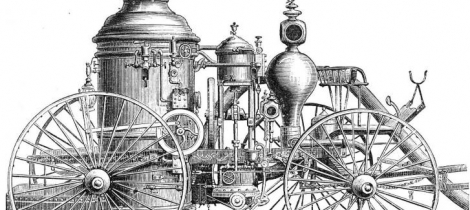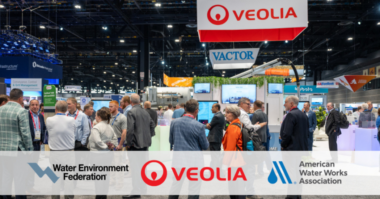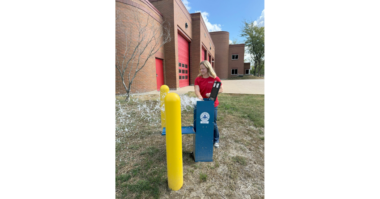Centuries ago, when water pumps changed from rotating bucket wheels to the centrifugal impeller design, the first pump shaft was sealed with hemp fibers jammed between the pump casing and the shaft. This kept most of the water in the pump but with wobbly impellers, flimsy shafts and loose bearings, this crude packing was just a small reduction to a huge leak path. Since, engineers have made improvements to evolve stuffing box designs into what we have today.
Unfortunately, shaft deflection still causes high leakage and rapid packing wear. With water costs soaring, this area of the pump has become critical. Mechanical seals are sometimes used but their fragile nature, high cost and labor-intensive change outs make them a marginal choice for economical operation, especially where impeller nose gap adjustments are required, if cavitation or water hammer events are a possibility, and when cost is a factor.
This packing wear and leakage could be dramatically reduced if there was a way to place a bearing into the seal chamber directly behind the impeller to stabilize the shaft. Spacer bushing approaches have been tried but these wore out rapidly when slurry or suspended solids were present in the process flow. Stiffening the shaft helps but at significant cost penalty, especially where existing pumps would have to be modified.
Enter the unique PackRyt® bearing system. The bearings are made from proprietary compounds which have unsurpassed wear resistance and compressive strength. Custom designed for each stuffing box and shaft diameter, it becomes a close running support for the shaft to reduce the amount of deflection that occurs during normal pump operation. Keeping the shaft supported right behind the impeller minimizes the elliptical movement that occurs due to changes in pump speed and hydraulic loading. This motion deforms conventional packing away from the shaft, which quickly increases leakage. The result is Maintenance over tightening the gland follower, causing increased power consumption and premature packing wear, especially in slurry operations.
Chemical content in a process flow determines what wetted materials are required to avoid corrosion damage. PackRyt® bearings can be used in most harsh environments within the pH range of 1 to 14 and with temperatures up to 450°F (232°C) depending on actual pump speed and duty conditions. These operating requirements are always evaluated in the initial design stage to ensure proper sealing performance and long life.
This system can be further enhanced with a change from conventional old rope packing. Modern materials and braiding methods have evolved packing styles that can run from nearly dry to dry. By using the correct packing style in each ring position, longer life and lower operating costs can be achieved while reducing water consumption and leakage to atmosphere. For example, in a standard arrangement, the OEM lantern ring would be removed and replaced with a PackRyt® bearing designed with an integral lantern ring groove (BLR®) . These are precision split so they can be installed without taking the pump apart. Packing ring materials would then be selected based on pump operating conditions including speed, temperature, pressure and flush provisions.
In most cases, these bearings can convert a 1L3 packing arrangement to L3 by using a longer bearing to replace the first packing ring position, thus eliminating the primary source of particle embedment in a soft ring with subsequent grinding effect. This provides more shaft support with greater gland water control while reducing packing ring replacement cost by 25% per set. The long life of this bearing and lantern ring combination will also reduce repack time since it stays in place while only the outer rings are replaced, if needed.
The PackRyt® bearing is designed to run with minimal clearance between the bearing ID and the shaft sleeve OD to provide shaft support and cut water consumption. This calculated dimension creates a throttling effect that restricts the amount of gland flush water that can pass into the process flow while still providing cooling and lubrication to the packing rings. It also maintains forward flow to keep slurry particles from reaching the packing rings during operation. All this while stabilizing the shaft in a fixed running position, virtually eliminating deflection effects.
Next comes packing ring selection. Most OEM pump companies use low cost “generic” packing when they ship the pump. While this is somewhat adequate for most clear water use and testing, it is not always the best choice for long pump service. SealRyt® packing styles have been developed from years of real world testing and include many patents. Using two or more different, die-formed braided packing styles in the stack allows better control of the flush water leakage and seal area temperature. For example, SealRyt® Style 472 packing has excellent abrasion resistance, which makes it ideal for slurry contact. On the atmosphere end, SealRyt® Style 317 incorporates graphite in carbon yarns to provide heat transfer from the shaft to the stuffing box allowing operation with near zero water leakage. Both of these styles are self lubricating to eliminate “dry start” problems that occur with other packing brands.
Although certain packing systems are designed to run with no water, adding a small supply of gland water will ensure long service life and minimal maintenance. When converting a standard stuffing box to the PackRyt® bearing and SealRyt® packing, water consumption will be reduced automatically. Supply pressure is not critical as long as it is about 15 psi (1 bar) above the seal chamber pressure. Many pumps have gland water pressures set to 15 psi above shut head pressure. This prevents process flow and slurry from being forced past the bearing and into the packing should the pump discharge become blocked. The PackRyt® bearing will still reduce water use at these pressures, allowing installation without having to modify your existing supply system. Flow control devices and flow meters are available from SealRyt® to complete the installation and help quantify your cost savings.
SealRyt® packing is available in bulk or shipped as sets, cut and die-formed to fit, stacked in order and ready for installation without need for additional lubrication or special techniques. Simply remove the packing from the shipping sleeve, slide each ring on the shaft making sure to index the joints properly and then tighten the gland per enclosed instructions. The pump is ready to return to service.
PackRyt® bearings can also be used to ensure the longevity of mechanical seals installed in a pump stuffing box. Shaft deflection causes seal faces to run off center and change the sealing area contact path during pump operation. This allows process fluids and solids to migrate between and past the faces resulting in leaks and premature failure. By installing the O-ring mounted bearing in the bottom of the stuffing box and adding a small volume of pressurized gland water, the mechanical seal is isolated in a clean environment and runs in a stable, centered position. This also minimizes the amount of water required when compared to normal mechanical seal flush requirements with or without throat bushings.
This technology has earned its way into many process applications. Vertical turbine and other long shaft pumps can now be stabilized closer to the impeller with a high load bearing. In these applications we can provide a bearing that will work between each impeller chamber as well as at the bottom of the shaft. Side entry agitator shafts can be supported at the vessel entry point, minimizing packing damage caused by the changing forces on mixer blades while reducing the load on the gearbox bearings.
Saving the best for last, all SealRyt® components and packings are Made In America in our large, modern manufacturing facility located in Westfield, Massachusetts. All parts from incoming packing textiles to outgoing sealing sets are designed, manufactured and inspected in house. We continue to investigate new materials and techniques to provide our customers with the most cost effective, longest lasting sealing systems available.
In summary, equipment sealing reliability can be dramatically improved by stabilizing the pump shaft. The PackRyt® bearing is a proven method of providing that “third bearing” support next to the impeller to reduce shaft deflection where it is most critical. This significantly increases packing life while reducing gland flush water consumption, operating costs and maintenance time. Incorporating the PackRyt® bearing and SealRyt® packing into your stuffing box can produce a modern solution to that age old pump problem.
Please contact your local SealRyt® professional, pump OEM or our office for more information and product support. Our office phone is 413-564-5202 and our website is www.sealryt.com where you can download all of our catalogs. We look forward to working with you.
To contact the Author, email bob@sealryt.com




